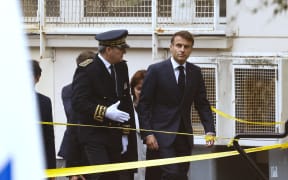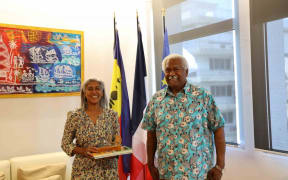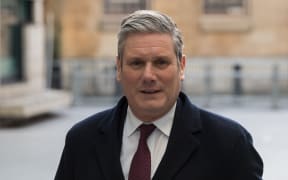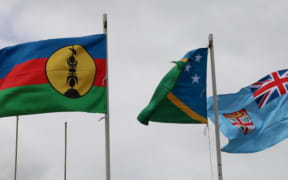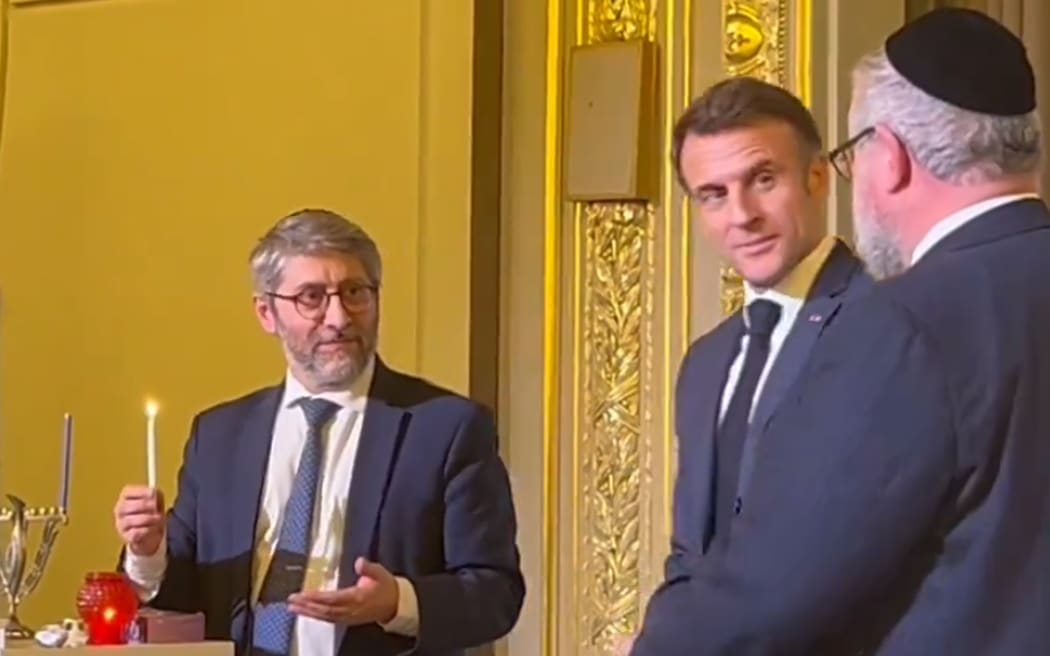
President Emmanuel Macron looked on as France's Chief Rabbi Haïm Korsia lit a candle for the first night of Hanukkah. Photo: Screenshot / Rabbi Mendel Samama /@EURORABBI
By Hugh Schofield for the BBC.
Emmanuel Macron has been accused of betraying the French Republic after he took part in a Jewish ceremony inside his official residence, the Elysée Palace.
In a country where the separation of religion is itself a religion, the lighting of a Hanukkah candle inside the historic Salle des Fêtes on Thursday was immediately denounced by politicians of both right and left.
The president had invited France's Chief Rabbi Haïm Korsia to light the first of eight candles on a Hanukkiah, or candelabra, marking the start of the Jewish festival of lights. The occasion was the award to President Macron of a prize for his efforts against antisemitism.
But when video of the ceremony appeared shortly afterwards on social media, there was furore.
For French opinion-formers of all stripes, the president had committed an enormous faux-pas by allowing religion into the secular hallows of the presidency.
"As far as I know this is the first time this has ever happened. It is a breach of secularism," said David Lisnard, a prominent right-wing opposition figure who is also mayor of Cannes.
"The Elysée is not a place of religion. You cannot compromise with secularism," said the Socialist president of the Occitania region, Carole Delga.
"Will Macron now do the same for other religions? Some yes, some no? It's a dangerous spiral," said Alexis Corbière of the far-left France Unbowed.
Even some French Jews were perplexed. "This is something that shouldn't be allowed to happen again," said Yonathan Arfi who heads the Representative Council of French Jewish Institutions (Crif).
"French Jews have always considered secularism as a law of protection and of freedom. Anything that weakens secularism weakens Jews," he said.
The idea of "secularism" was put into a French law of 1905, after years of struggle between the state and the Roman Catholic Church. It enshrined freedom of belief, but ended state involvement in the Church and removed all signs of religion from public buildings.
The law has since come to be regarded as a cornerstone of modern France, ensuring strict neutrality between Christianity, Islam and Judaism, and guaranteeing that citizens are seen as individuals-in-a-state and not as members-in-a-community.
For Emmanuel Macron to have breached a century-old Republican doctrine will be seen by critics as confirmation of his overweening self-belief and "Jupiterian" entitlement.
Speaking on Friday as he viewed renovation work at Notre-Dame cathedral, the president said he had no regrets, and that his invitation to the chief rabbi had been made "in the spirit of the Republic and of concord".
"If the president had actually carried out a religious act, or taken part in a ceremony, that would indeed have been a breach of secularism. But that is not what happened," he said.
The gesture comes at the end of a long political sequence over Gaza in which President Macron has been under attack for improvising policy on the hoof.
Critics say he has failed to present a consistent line on the war, instead zigzagging from overclose proximity to the Israeli side at one moment, to intense courting of Arab opinion at the next: always with the aim of appeasing the large Jewish and Muslim populations in France.
Shortly after 7 October, Macron visited Israel and proposed an international coalition against Hamas, much like the one that defeated so-called Islamic State (IS).
Accused of abandoning France's traditional backing for Palestinians, he then organised an international aid conference on Gaza to which Israel was not invited.
He then further angered some Jews by refusing to attend a march against antisemitism, and in a BBC interview he spoke of "babies" being bombed by the Israeli air force.
Some have detected in this latest gesture at the Elysée a new, single-handed touch to the tiller of state.
In France's foreign ministry, which has been largely sidelined by President Macron, off-the-record interviews make clear the frustration among professional diplomats.
"One day Macron is on the verge of announcing that he's going to help the Israeli army wipe out Gaza. Two weeks later he's on the BBC calling Israel a baby-killer," one former diplomat told Libération newspaper.
"OK, we know it is all about internal politics. But here, he's alienating first the Muslims, then the Jews."
*This story was first published on the BBC.

